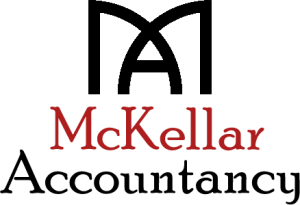In this month’s Enews we look at the closure of the VAT filing portal and the latest rate of UK inflation. We also update you on the impact of frozen tax thresholds and pandemic support scheme fraud. With guidance for employers and warnings on scams, there is a lot to update you on.
- Online VAT filing portal to close in May
- UK inflation falls to 10.1% in March
- Tax threshold freeze trebles to £25 billion
- PAC criticises government for billions lost to error and fraud
- No sign of hiring difficulties easing, says BCC
- £177.6 million lost to impersonation scams in 2022
- Workers must be protected from decisions made by AI, TUC says
- Latest guidance for employers
Online VAT filing portal to close in May
HMRC has reminded businesses that file VAT returns annually that the online VAT filing portal will close from 15 May 2023.
The VAT portal closed to standard quarterly filers on 7 November 2022, but was kept open for a longer period for those who file annual returns.
In emails to businesses and tax agents, HMRC urged all VAT registered businesses to use Making Tax Digital for VAT (MTD for VAT) compatible software to keep VAT records digitally and file VAT returns.
Following the closure of the portal, businesses that file VAT returns annually will no longer be able to use their VAT online account and instead must use compatible software to file future VAT returns.
HMRC said that businesses that fail to do so may have to pay a penalty.
If a business is already exempt from filing VAT returns online or if it is subject to an insolvency procedure, it is automatically exempt. Business owners can apply for an exemption if it’s not reasonable or practical for them to use computers, software or the internet to follow the MTD for VAT rules.
Internet link: GOV.UK
UK inflation falls to 10.1% in March
UK inflation has dropped, but remains in double-digit levels, as the cost-of-living crisis eased slightly in March.
The annual consumer prices index dropped to 10.1% in March, down from 10.4% in February, the Office for National Statistics (ONS) reported.
It was widely expected to fall below 10%, but food prices remained stubbornly high, rising at their fastest rate in 45 years.
Increased prices for bread, cereal and chocolate meant the cost of living rose more than expected last month.
David Bharier, Head of Research at the BCC, said:
‘Prices continue to rise at an alarming rate. Driven largely by housing and food costs, this is on top of an already high growth rate from this time last year.
‘Our research shows that inflation is still by far and away the top concern for UK SMEs. This has been driven by three years of global lockdowns, supply chain crises, energy shocks, and new trade barriers with the EU.
‘Small businesses, particularly those in the retail and hospitality sector, have been the least able to absorb cost rises, and we see that most have not invested or grown.
‘Businesses need to see a reduction in the cost and burden of exporting and importing, particularly with the EU, as well as increased support to deal with the unprecedented energy price shock.’
Internet link: ONS website BCC website
Tax threshold freeze trebles to £25 billion
Research carried out by think tank the Resolution Foundation has suggested that the size of the UK’s six-year ‘stealth tax’ threshold freeze has nearly trebled to £25 billion.
The figure is significantly higher than the previous forecast of £9 billion announced during the 2021 Budget.
A small number of tax thresholds have been frozen since 2021/22 and are set to remain frozen until April 2028. The think tank found that next year’s threshold freeze will raise £12 billion a year by the time of the final freeze in 2027/28.
Adam Corlett, Principal Economist at the Resolution Foundation, said:
‘High inflation has pushed up the projected revenue take from the government’s personal tax threshold freeze to £25 billion a year – almost triple the amount forecast when the freeze was introduced. But higher-income households will be the ones most affected by next year’s major tax rises.
‘High inflation also means benefits are being uprated by 10.1 in April, which will boost low-income households’ finances, although benefits are only set to fully catch up with price rises after April 2024’s uprating.’
Internet link: Resolution Foundation website
PAC criticises government for billions lost to error and fraud
The Public Accounts Committee (PAC) has criticised the government for losing billions of taxpayers’ money to fraud and error in pandemic support.
The Department for Business and Trade (DBT) is ‘effectively writing off’ nearly £1 billion paid out erroneously by local authorities on its behalf in pandemic support. Meanwhile, of an estimated £2.2 billion lost to fraud and error in Covid-19 schemes, only about £10 million has so far been recovered.
The PAC’s report says the DBT continues to make slow progress on its counter fraud activities related to the Bounce Back Loan Scheme, and its ‘lack of curiosity’ about lenders’ performance increases the risk of losses for the taxpayer.
Despite accepting that grant payments made through councils to their local businesses under Covid-19 business support grant schemes were ‘not in line with how the scheme was meant to work’, the Business Department does not expect to recoup these funds. Of the estimated £985 million of grants paid out in error, only £5.3 million has been recovered.
Dame Meg Hillier MP, Chair of the Public Accounts Committee, said:
‘At a time of financial crisis, the Department for Business has lost billions of taxpayers’ desperately needed funds. It shows no real signs of making the improvements that would prevent the big mistakes it has made over many years, especially during the pandemic, happening all over again.’
Internet link: Parliament website
No sign of hiring difficulties easing, says BCC
Businesses are still facing major difficulties in hiring new staff, according to a survey conducted by the British Chambers of Commerce (BCC).
The latest Quarterly Recruitment Outlook (QRO), a survey of more than 5,000 UK firms, found that 80% of those attempting to recruit have faced challenges.
While recruitment difficulties are being experienced across the economy, firms in the hospitality and manufacturing sectors were the most likely to report recruitment difficulties. This is closely followed by the construction and engineering sector and then professional services; and the public, education and health sector.
The BCC is calling on the government to work with business on solutions including skills training, investment and urgent reform of the Shortage Occupations List (SOL).
Jane Gratton, Head of People Policy at the BCC, said:
‘People shortages are a massive issue and employers can see little sign of improvement. The high number of unfilled job vacancies is damaging businesses and the economy. Firms are struggling to fulfil order books and turning down new work.
‘There is no quick fix and employers and the government need to work together to find solutions. While firms can do more to make workplaces more flexible and jobs easier to access, the government must redouble its efforts to encourage and help people into work.’
Internet link: BCC website
£177.6 million lost to impersonation scams in 2022
£177.6 million was lost to impersonation scams in 2022, data published by trade association UK Finance has revealed.
The data showed that there were 45,367 cases of impersonation scams in 2022. It also revealed that just 51% of individuals always check whether a request for personal data or money is legitimate. Just 38% of 18–34-year-olds always checked, according to UK Finance’s research.
Impersonation scams involve criminals pretending to be a trusted organisation such as a utility company, your bank or the police, and often begin with an email, text or call with a request for money or personal information.
UK Finance says individuals should stop and take a moment to think before parting with money or information; challenge any unsolicited communication; and protect themselves and their finances by contacting their bank immediately if they think they’ve fallen for a scam.
Katy Worobec, Managing Director of Economic Crime at UK Finance, said:
‘We receive genuine communication from trusted organisations on a daily basis, meaning it’s not always easy for us to spot when an approach for information is in fact from a criminal.
‘Anyone can be caught out by a scam in the heat of the moment and criminals are constantly adapting their tactics to appear legitimate.
‘It has never been more important to take steps to check for genuine communication and follow the advice of the Take Five to Stop Fraud campaign and to stop, challenge and protect.’
Internet link: UK Finance website
Workers must be protected from decisions made by AI, TUC says
The Trades Union Congress (TUC) has stated that UK employees must be protected from workplace decisions made by artificial intelligence (AI) systems.
The TUC warned that, in some instances, AI technology is making ‘life-changing’ decisions, including those in relation to line managing, hiring and firing.
AI systems are being used to analyse the facial expressions and tone of voice of job applicants during recruitment processes. The TUC said that this could lead to ‘greater discrimination at work’.
It also suggested that AI technologies could be used by employers to track their employees’ performances and make automated decisions to help to dismiss employees.
TUC Assistant General Secretary Kate Bell said:
‘AI is going to transform the way millions work in this country and is already being used across the economy to line-manage and hire and fire staff.
‘Without fair rules, this could lead to widespread discrimination and unfair treatment at work.
‘But the government is refusing to put in place the necessary guardrails to stop people from being exploited.
‘Instead of clear and enforceable protections, ministers have issued a series of vague and flimsy commitments that are not worth the paper they are written on. And they have failed to provide regulators with the resources they need to do their jobs properly.
‘It’s essential that employment law keeps pace with the AI revolution. But last month’s dismal AI white paper spectacularly failed to do that.’
Internet link: TUC website
Latest guidance for employers
HMRC has published the latest issue of the Employer Bulletin. The April issue has information on various topics, including:
- reporting expenses and benefits for the tax year ending 5 April 2023
- the annual ‘Tell ABAB’ survey gives small businesses a voice in the tax system
- understanding your obligations on right to work and National Minimum Wage
- anti-money laundering supervision YouTube videos to help businesses
- preparing for the Economic Crime Levy
- the official rate of interest from 6 April 2023.
Please contact us for help with tax matters.
Internet link: Employer Bulletin







